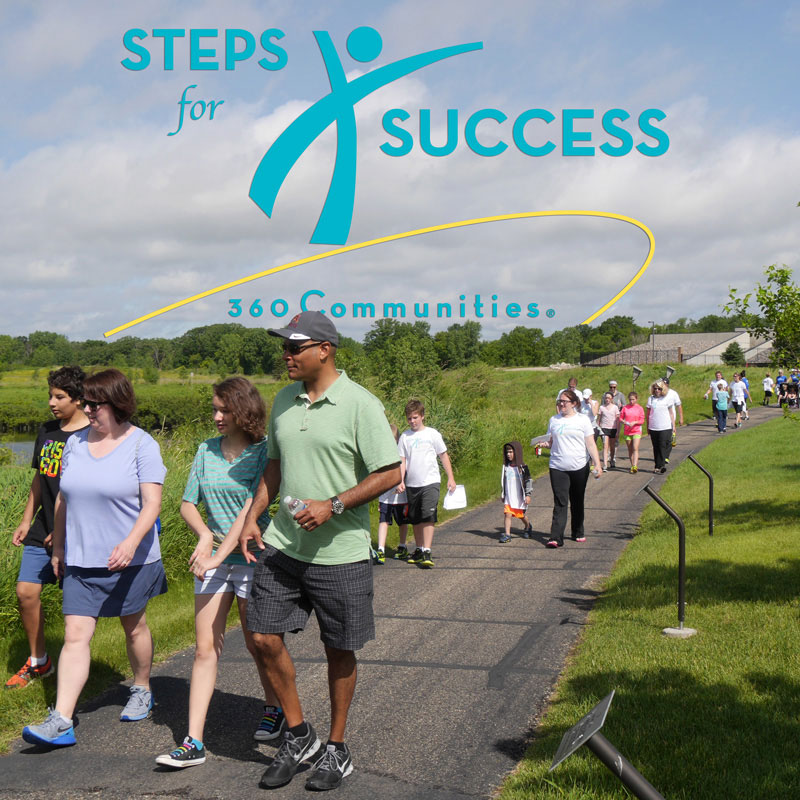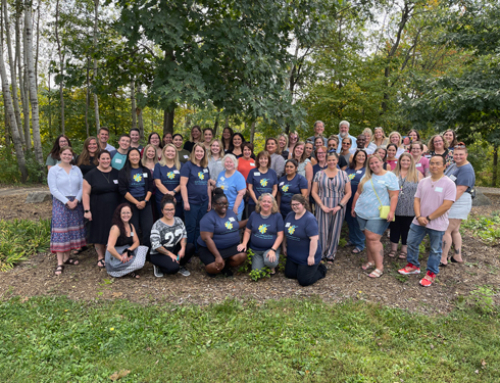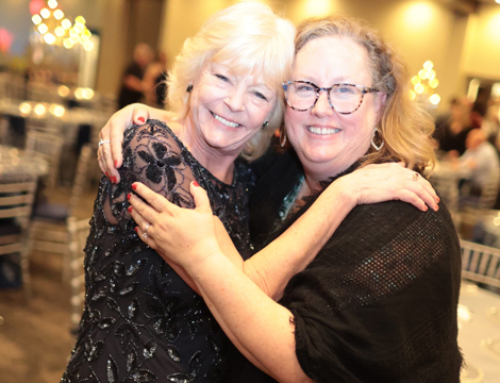by Lisa Lusk
Director of School Success
Tears of joy and relief streaked down Sandy’s face when she processed the news. It was December, and the latest test results showed that her first-grader, Kylie, was now reading slightly above grade level, a monumental improvement from where she was at the beginning of the school year. Sandy was proud because she knew where her daughter had come from and the teamwork it took to get to this point.
Just a year before, the divorced mother of two young children felt overwhelmed. Sandy’s ex-husband gave her no financial support, so she worked hard on her own to provide everything she could for her daughters. Her full-time retail job was not enough to makes ends meet. When school staff discovered that the family was struggling financially, they referred her to 360 Communities Partners For Success family support worker Beth Utz for help. Beth set Sandy up with a 360 Communities food shelf appointment to help meet some of the family’s basic needs, connected her with donated school supplies and coats, and helped her work with Dakota County to keep her family’s medical insurance active.
360 Communities’ school-based Partners For Success helps preK-12 students and families overcome barriers to school success. Family support workers partner with students, parents, and educators to open lines of communication, connect families to stabilizing community resources, and implement effective home-based strategies that increase parental involvement, boost attendance, and improve academic performance.

Support this school success work by attending our May 21st Steps for Success walk on the Thomson Reuters campus in Eagan.
The stabilizing support that Beth provided as well as regular check-ins helped establish her as a trusted person in Sandy’s life. So this year, at fall conferences, when Sandy discovered that Kylie was having trouble with reading and writing, she called Beth immediately. The first-grade teacher reported that Kylie was below grade level in reading and had trouble with sentence construction. Sandy felt lost, not knowing how to help her daughter. Beth encouraged Sandy to try a PFS Family Learning Plan. She told her that some strong intervention early can be all it takes to help a child to start feeling successful.
They worked together with the first-grade teacher to develop the FLP. It involved Sandy reviewing Kylie’s homework each night, Kylie reading out loud to her mom every night for 10-15 minutes, and Kylie writing three sentences each night with editing and guidance from Sandy.
Initially, it was tough for them to carve out the time to stick to the FLP consistently. In the first week, they followed through with the plan on only three out of five weeknights. However, the teacher could already notice a small improvement in Kylie’s work, and Beth shared that with Sandy during their weekly conversation. This success inspired Sandy and Kylie to make a deeper commitment to the plan. The following week, Sandy and Kylie reported that they were able to stick to the plan each weeknight. After four weeks, the routine produced dramatic gains for Kylie.
Beth modified the family learning plan to include more reading time, and supplied Kylie with new and interesting books. She suggested that Sandy and Kylie make regular trips to the library to ensure Kylie always had something new to read. By December, it was clear that all of the intensive work was paying off for everyone involved. Kylie appeared to be on a clear path to academic success.
This is critical because research by the Annie E. Casey Foundation says reading proficiency by the third grade is a leading indicator of future school success. According to the study, students who cannot read proficiently by the third grade are four times more likely to drop out of high school than proficient readers.
Partners For Success is a program that the University of Minnesota’s Center for Applied Research and Educational Improvement says has at least a five-to-one social return on investment thanks to increased food security, increased housing stability, and increased parental involvement. The 2015 study says that preventing as few as four students from dropping out of high school per year, generates social benefits that far exceed the cost of the program. Benefits include personal earnings gains, higher tax revenues, public health savings, and crime reduction.
This program is successful because of the trusting relationships that family support workers are able to build with parents, students and teachers. By working together to open lines of communication, and to craft custom solutions to a family’s unique set of circumstances, success can be accessible to everyone.
As the 2015-2016 school year comes to a close, Kylie’s transformation has been remarkable. Her teacher reports that she has become one of the top students in her class. Sandy is using a reading list for the summer from her local library to help Kylie build on the success she has achieved this year. By guarding against summer reading loss, Sandy is ensuring a solid start to another successful school year in the fall.
You can make sure this innovative program helps create steps for success for more students like Kylie. On May 21, 360 Communities’ Second Annual Steps for Success benefit walk takes place on the Thomson Reuters campus in Eagan. Help support students, families and teachers by raising funds for 360 Communities’ Partners For Success program. WCCO-TV’s Matt Brickman will emcee the event which includes 1- and 2-mile walks, free food, music by The Divers, face painting, games, and prizes.





